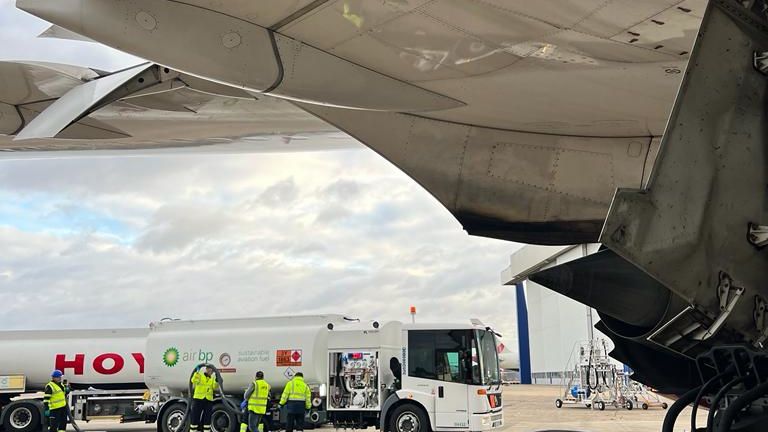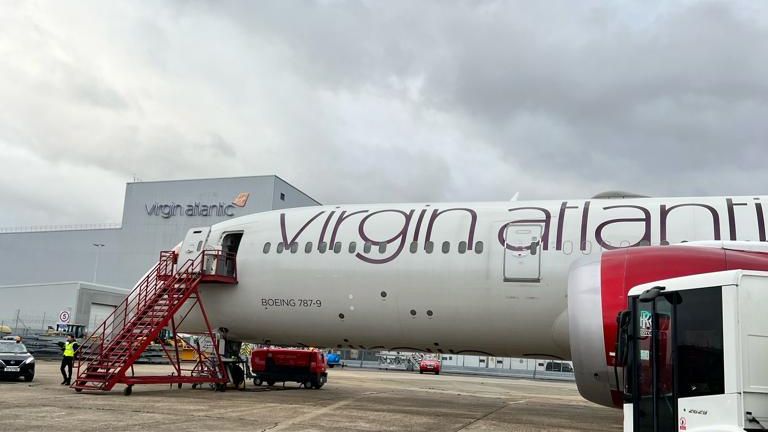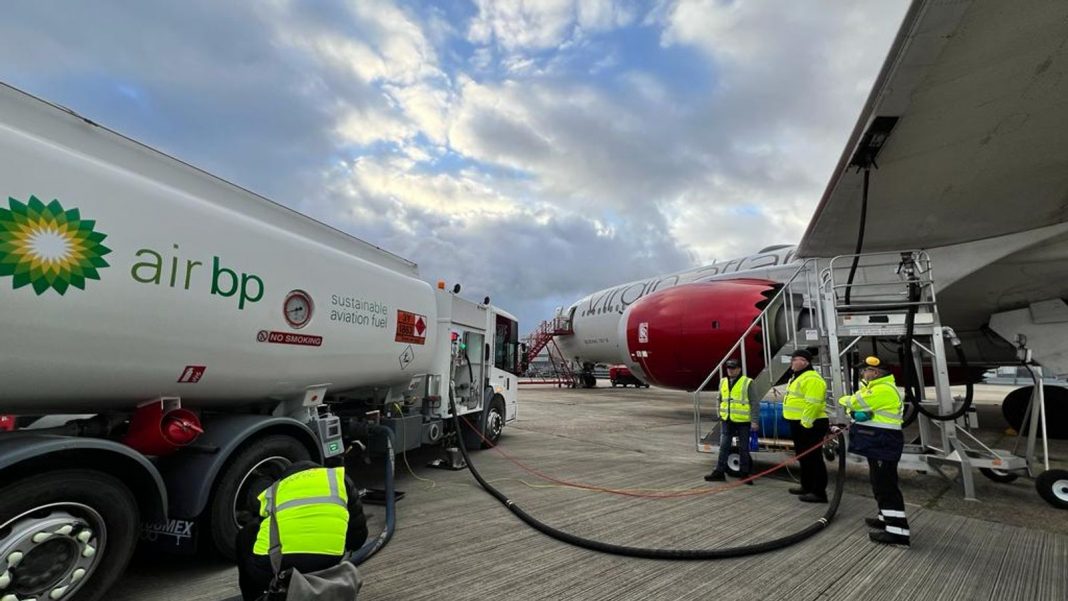For the first time a long haul commercial aircraft is flying across the Atlantic using 100% sustainable aviation fuel (SAF).
Until now regulators have only allowed airlines to use up to 50% of eco-fuel to power their engines.
But this Boeing 787 test flight from London Heathrow to New York’s JFK airport will be powered purely by SAF – made up mainly of used cooking oil and plant-based products.
Holly Boyd-Boland, vice president of corporate development at Virgin Atlantic, told Sky News: “This isn’t a zero-emission flight, but it absolutely is demonstrating that we have huge levers out there and huge opportunities to materially bring down the carbon footprint of flight today.”
Airlines are pinning their hopes on SAF to reduce net emissions by up to 70% when compared with fossil fuels as they try to decarbonise flying before new electric and hydrogen-powered options are developed.
SAF doesn’t require special engines or any modifications to the aircraft.
Commercial flying currently accounts for up to 3% of global carbon emissions, though just 0.1% of fuel in planes is SAF.
However, SAF is currently only made in small volumes and costs between three to five times as much as regular jet fuel.

The Boeing 787 test flight from Heathrow to JFK will be powered purely by an eco-fuel
Eighty-eight per cent of the fuel blend being used in the Virgin flight is HEFA (hydroprocessed esters and fatty acids) made from used cooking oils which the government is soon going to limit as aviation fuel, believing it should instead be turned into fuel for cars and lorries.
Matt Finch, from the campaign group Transport and Environment, said: “It’s a well-intentioned flight that’s been poorly executed and it’s been poorly executed because of a fuel that’s going into the plane.
“The fuel going in is just simply not sustainable”.
Airlines and SAF producers say the government needs to do more to support, incentivise and help scale up the production of the fuel in the UK if it is to reach the planned 10% SAF target by 2030 and “Jet Zero” by 2050.
Read more:
More than 100 climate activists arrested after two-day blockade
One of Scotland’s national park weighs up clampdown on campfires

Critics say the flight has been ‘poorly executed’
However, the industry faces a significant challenge in order to meet those targets.
A recent Royal Society Net Zero Aviation Policy report said half of all UK agricultural land – or more than double its renewable electricity supply – would be required to make enough sustainable aviation fuel to fulfil them.
Professor Graham Hutchings of Cardiff University chaired the report. He said: “This Virgin flight is a good thing, it is important we use SAF and it is in the public mind.
“But we need to be very clear about the strengths, limitations, and challenges that must be addressed and overcome if we are to scale up the required new technologies in a few short decades”.







